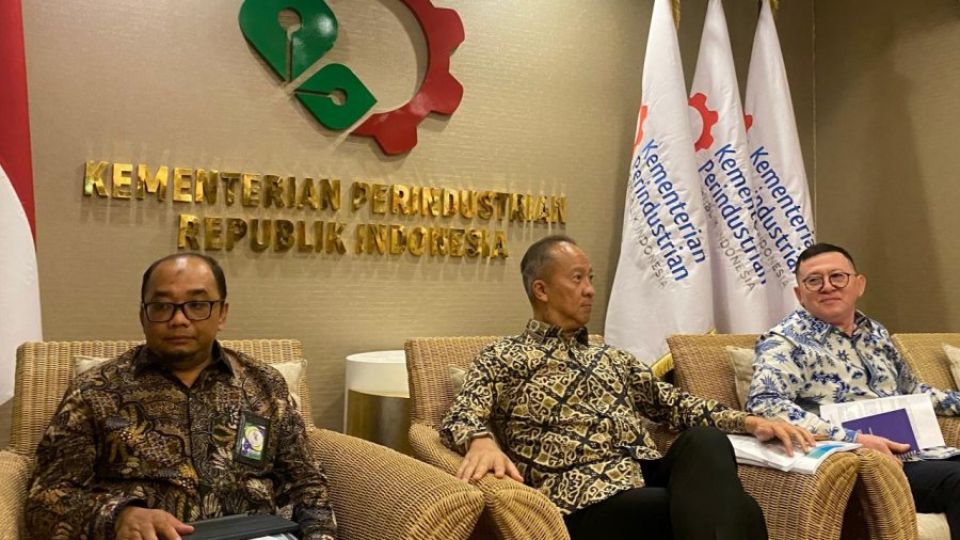November 27, 2024
JAKARTA – AUS$100 million investment bid from Apple Inc. has failed to convince the government to revoke a ban on sales of the new iPhone 16 in Indonesia.
Southeast Asia’s largest economy expects the United States tech giant to not only view Indonesia as a market for its devices but also consider it as a production base and a part of its global supply chain.
Industry Minister Agus Gumiwang Kartasasmita told reporters on Monday that the offer received on Nov. 18 paled in comparison with Apple’s investments in smaller markets of the region, such as Vietnam and Thailand.
“We have done an assessment, and this [proposal] does not meet principles of fairness,” Agus said.
Read also: Govt weighs ‘fairness’ of Apple’s $100m investment plan to lift iPhone sales ban
For instance, Apple has invested significantly more in Vietnam, pouring over Rp 244 trillion (US$15.4 billion) into manufacturing facilities there, despite lower sales at around 1.5 million units, he said.
Indonesia led Southeast Asia in iPhone sales with 2.5 million units sold, generating Rp 30 trillion in revenue, according to the ministry’s data.
Apple had only invested about Rp 1.5 trillion in developer academies in Indonesia, including its 2020-2023 contract, falling short of its Rp 1.7 trillion pledge, the minister added.
Agus called the $10 million discrepancy “so small,” yet a significant sticking point for the California-based tech firm to trade its new iPhone handsets in the country, as the minister emphasized that meeting prior commitments was essential.
The government has prohibited the sale of iPhone 16 devices in the country, having found that Apple was not compliant with a rule that its products meet a 40-percent local content requirement.
Apple agreed with the government to satisfy Indonesia’s local content requirement in 2018 by establishing application developer academies as a substitute for manufacturing facilities.
Meanwhile, rival phone makers like South Korea’s Samsung Electronics and China’s Xiaomi have invested Rp 8 trillion and Rp 55 trillion, respectively, to produce their devices locally.
“We want Apple to continue doing business in Indonesia, but we demand a fair [investment] figure [to lift the sales ban],” Agus emphasized. “We’ll ask Apple’s US office to send a negotiation team to meet us.”
The $100 million plan reportedly included a component plant and investment in academies.
The government is holding the company to its commitment to fulfill its remaining $10 million, which Apple was trying to offset with the new bid, and expects it to present a more significant investment proposal for the 2024-2026 period.
The minister added that the top priority was still to get the company to open a manufacturing plant in Indonesia, which could stimulate local supply chains and create jobs.
During a visit to Indonesia in April, Apple CEO Tim Cook described the country as a “very important” market and said the company was exploring the possibility of building a manufacturing facility.
Indonesia has long employed trade regulations as a strategy to attract foreign investment into domestic manufacturing, but experts argue that the country’s rigid local content regulations could backfire by deterring global firms.
The Industry Ministry has also banned sales of Google’s Pixel smartphone, saying the US tech giant Alphabet Inc. had also failed to meet local content requirements.
Lydia Ruddy, managing director of the American Chamber of Commerce (AmCham) in Indonesia, said on Tuesday that meeting local content thresholds could be “very challenging” for global companies.
“If they can’t get the parts that they need to manufacture their products here of the quality that they need, then they’re not going to feel comfortable coming in and investing here,” Ruddy said.
She suggested a more flexible approach to improve Indonesia’s investment climate, or else “companies might hesitate to invest in the country at all.”
Eric Hsu, counselor for commercial affairs at the US Embassy, said the one-size-fits-all approach for local content requirements was “not practical”, highlighting the complexities of technical calculations and compliance.
“We are very much looking forward to working with the government to simplify that,” Hsu said.
Indonesia relaxed the local content requirement in a bid to spur foreign investment in renewable energy infrastructure this year after state-owned utility firm PLN said funding for at least nine projects was hampered by the local content policy.
Read also: Industry Ministry to ease local content rule on renewable projects
Meanwhile, the Industry Ministry is considering increasing the local content requirement for smartphones and tablets under Industry Ministry Regulation No. 29/2017 to over 35 percent, saying it would provide greater certainty for local manufacturers.
Hasran, trade researcher of the Center of Indonesian Policy Studies (CIPS), argued the weeks-long standoff with Apple had further highlighted that the current local content policy had failed to create a positive investment climate.
Rigid local content rules made it “inefficient” for global companies like Apple to invest in the country, he told The Jakarta Post on Tuesday, as forcing them to “source more expensive and less competitive domestic materials” could drive up production costs and make it harder for companies to compete globally.
It could also harm local businesses, Hasran added, as it could create a sense of government favoritism, prompting complacency and reducing their motivation to innovate, compete and focus on export-oriented growth.


